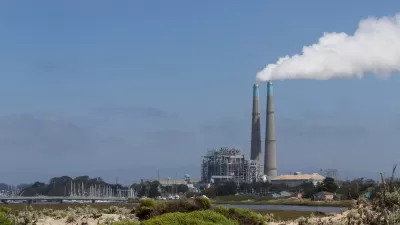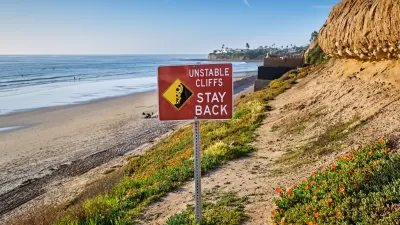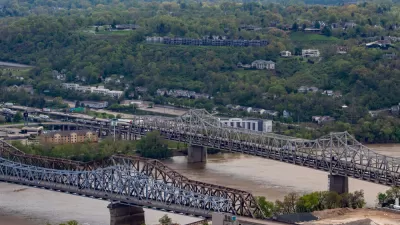The Biden administration recently announced a new $27 billion program for bridge repair. The funding has been allocated to states based on a unique funding arrangement.

The Biden administration on Friday announced $27.5 billion in funding to repair bridges around the country as part of the $1.2 trillion Infrastructure Investment and Jobs Act (IIJA) approved in 2021.
The spending for the Bridge Replacement, Rehabilitation, Preservation, Protection, and Construction Program (also known as the Bridge Formula Program) was announced in a Federal Highway Administration press release on Friday, January 14.
"The bridge program is one of the largest new sources of federal spending in the package and one that encapsulates its bipartisan appeal," according to an article in The Washington Post by Ian Duncan. The IIJA includes $550 million in new spending as a portion of its $1 trillion total.
Bridge Formula Program funding has been allocated to states based on the number of bridges in poor condition rather than by the size of the state—the latter is more typical of most federal transportation spending. So, as reported by Sarah Cassi for LeHigh Valley Live, Pennsylvania, with 3,000 bridges in poor condition, will receive $1.6 billion.
Duncan reports that Louisiana is in line to $1 billion to help repair 1,600 bridges in poor condition around the state, California will receive $4.6 billion, and 25 states will receive the minimum of $225 million over five years.
In another funding arrangement unique to the Bridge Formula Program, states won't be required to match federal funding with 20% in state or local funding. States will be allowed to use federal funds for 100% of the cost of repairing or rehabilitating bridges. More details on the bridge program can be found in a separate article by the Associated Press.
FULL STORY: DOT Announces Historic Bridge Investment Under Bipartisan Infrastructure Law

Alabama: Trump Terminates Settlements for Black Communities Harmed By Raw Sewage
Trump deemed the landmark civil rights agreement “illegal DEI and environmental justice policy.”

Planetizen Federal Action Tracker
A weekly monitor of how Trump’s orders and actions are impacting planners and planning in America.

Why Should We Subsidize Public Transportation?
Many public transit agencies face financial stress due to rising costs, declining fare revenue, and declining subsidies. Transit advocates must provide a strong business case for increasing public transit funding.

Understanding Road Diets
An explainer from Momentum highlights the advantages of reducing vehicle lanes in favor of more bike, transit, and pedestrian infrastructure.

New California Law Regulates Warehouse Pollution
A new law tightens building and emissions regulations for large distribution warehouses to mitigate air pollution and traffic in surrounding communities.

Phoenix Announces Opening Date for Light Rail Extension
The South Central extension will connect South Phoenix to downtown and other major hubs starting on June 7.
Urban Design for Planners 1: Software Tools
This six-course series explores essential urban design concepts using open source software and equips planners with the tools they need to participate fully in the urban design process.
Planning for Universal Design
Learn the tools for implementing Universal Design in planning regulations.
Caltrans
Smith Gee Studio
Institute for Housing and Urban Development Studies (IHS)
City of Grandview
Harvard GSD Executive Education
Toledo-Lucas County Plan Commissions
Salt Lake City
NYU Wagner Graduate School of Public Service





























